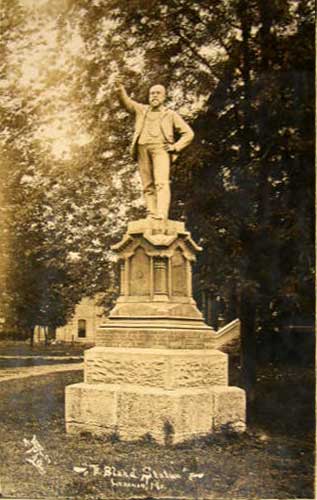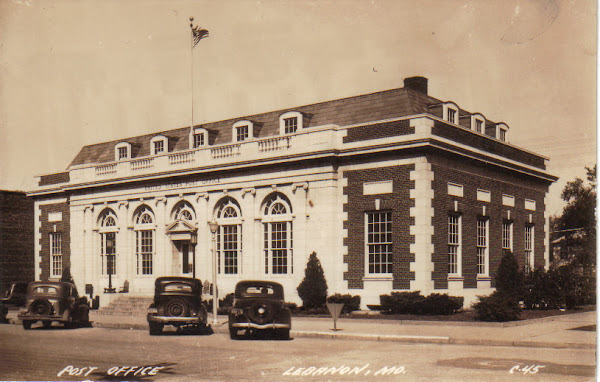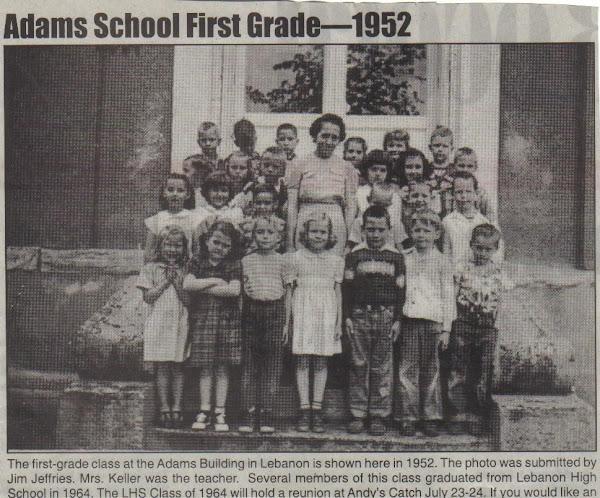Published July 4, 2007
Relish opportunity to celebrate Fourth
There's a poem circulating on the Internet that has some e-mailers a-twitter, both pro and con. Detractors say it's pro-military, and/or lacks the perspective that all of us who champion freedom, in our own ways, have blazed trails, held the faith and otherwise acted to preserve our freedom. Another critic says that rights are inherent, and no one "gives" them to us.
Ohhhh-kaaaay. Tell that to the people of Darfur.
The poem's detractors are correct in that it takes all of us doing our respective jobs to remain a free people, to protect our Constitution. I'm just sorry more of us don't defend it more fiercely, especially screaming like wounded crows, to our elected representatives.
The poem printed above is by the late Father Denis Edward O'Brien, who was a chaplain in the U.S. Marine Corps.
I included the poem in the recent funeral of my brother, George Keeslar. He was a veteran of the Korean War, a radio operator on the battlefield who came back home to take up a "trade," as he called it, and never received any accolades for his service that I knew of. He didn't dwell on the two years devoted to what our leaders determined was in the best interests of our country; he just went and did his job as a soldier.
Other people his age, who didn't go into the armed forces, had a two-year head start on beginning their careers, making money, starting families and whatever else they chose to do. He came back with a "suck it up, it was my duty" attitude and a duffel bag, and began to plan from there.
I wanted the veterans' tribute read at my brother's funeral, first, in recognition of what he did, but second, with the hope this message would come through as well: "It is the soldier, not the reporter ... It is the soldier, not the campus organizer ... It is the soldier, not the poet ... ."
The words also resonate for all the things I didn't have to do when we were my brother's age, nor did most of my contemporaries, even through we were in the middle of the Vietnam War. I got to start college right on time and didn't have to give a moment of any kind of civilian service to my country, to have any function that spilled over to the soldiers fighting, or to anything but pursue my own self-interests.
I'm not sure it was a good thing. I was a war protester then, so sure of myself and the rightness of my ideas at age 18 and 19, the same age my brother was when he was fighting in Korea. Ideologies aside, I had to give nothing, and I believe it colored my view of the world: that it was a safe cocoon where there would be setbacks, but all I had to do was to weather them. Certainly not to sacrifice a couple of years of my life to go in a totally different direction than I was intent on going.
So, on this, another July 4, a day I look forward to as a chance to celebrate what we have achieved in this imperfect yet glorious country, I relish the opportunity to celebrate and honor our veterans as well as our founding fathers, who were one smart bunch of cookies.
If it were not for our soldiers, I would not have the right to write whatever profound, zany or off-the-wall poem I want. Those who choose can even write any obscene poem they want. If not for our soldiers, my freedom of speech might be limited to writing on a piece of napkin in a German work camp (although I have a feeling surviving Americans would have tapped out messages to each other and hatched a plan to take ourselves back).
Yes, it does take all of us to make this giant, only 231-year-old experiment work.
It's just that I realize I've always had someone watching my back, making sure I have the safety and freedom to do what the First Amendment grants me the right to do.
Wednesday, July 4, 2007
Subscribe to:
Post Comments (Atom)
Current discussion on "Banishment during Civil War"
RE: [ourhistory] Banishment during the Civil War
Ann,
My gg-grandfather Ephraim Davis who was 33-36 at the time removed his family including my g-grandfather Alonzo (3 yrs old) and Harve (5 yrs old) to Illinois during the Civil War and returned afterwards. It is said he did this to protect his family, but on the return trip his wife and newly born daughter died and are buried near Rolla
I Googled ‘Banishment during the US Civil War” and found a couple of interesting notes on banishment
Note 1
Banishment to the South was a favored Yankee method of dealing with Southern sympathizers in their midst, though being a sympathizer did not necessarily mean being a spy. Many women were forced into exile under the threat of more severe punishment for offenses ranging from publicly denouncing an occupying army to actually giving information to the enemy. When Henrietta Barr's sister, Sarah Cotton, was arrested, Barr wrote in her diary:
"After 12 o'clock at night, Friday the 17th, Sarah was arrested and taken over the lines without a word of a trial. She was torn from her little children and threatened if she dared return that she would be `shot as a spy.' Comment is unnecessary."
Note 2
In response to widespread criticism of his suspension of the writ of habeas corpus and the banishment of Vallandigham, Lincoln wrote a long letter to Democratic Party leaders defending his actions. Lincoln declared that the regular civilian courts were inadequate during a rebellion. He claimed that those opposing the Unions cause endangered "the public safety." Ordinarily, he wrote, such people could not be arrested since criticizing the government was not a criminal offense. If such persons were arrested, they would undoubtedly be released on a writ of habeas corpus by a civilian court judge. The necessary solution, Lincoln argued, was to suspend the writ and lock up the troublemakers until the war ended.
As for Vallandigham, Lincoln charged that he was encouraging desertions from the Union army. "Must I shoot a simpleminded soldier boy who deserts," Lincoln asked, "while I must not touch a hair of a wily agitator who induces him to desert?"
After Vallandigham was banished to the South, his friends went to the U.S. Supreme Court in an attempt to convince the justices to hear the case. On February 15, 1864, the Supreme Court announced it would refuse to hear the case, saying that it had no authority to review the proceedings of a martial law court. While the bloody Civil War raged on, the Supreme Court decided it was not the time to challenge the power of General Burnside or his commander-in-chief, Abraham Lincoln.
Note 3
Rowland Family, Papers, 1844-1893, (C2244)1 folder(s)Includes letters from Robert A. Rowland to his wife Olive in Howard County, MO, while he was enroute (1849) and in California (1850) and during his imprisonment and banishment to Illinois during the Civil War. Also includes miscellaneous letters from other family members and newspaper article describing death of and memorial services for I.N. Rowland (1893).
Bill Henry
Ann,
My gg-grandfather Ephraim Davis who was 33-36 at the time removed his family including my g-grandfather Alonzo (3 yrs old) and Harve (5 yrs old) to Illinois during the Civil War and returned afterwards. It is said he did this to protect his family, but on the return trip his wife and newly born daughter died and are buried near Rolla
I Googled ‘Banishment during the US Civil War” and found a couple of interesting notes on banishment
Note 1
Banishment to the South was a favored Yankee method of dealing with Southern sympathizers in their midst, though being a sympathizer did not necessarily mean being a spy. Many women were forced into exile under the threat of more severe punishment for offenses ranging from publicly denouncing an occupying army to actually giving information to the enemy. When Henrietta Barr's sister, Sarah Cotton, was arrested, Barr wrote in her diary:
"After 12 o'clock at night, Friday the 17th, Sarah was arrested and taken over the lines without a word of a trial. She was torn from her little children and threatened if she dared return that she would be `shot as a spy.' Comment is unnecessary."
Note 2
In response to widespread criticism of his suspension of the writ of habeas corpus and the banishment of Vallandigham, Lincoln wrote a long letter to Democratic Party leaders defending his actions. Lincoln declared that the regular civilian courts were inadequate during a rebellion. He claimed that those opposing the Unions cause endangered "the public safety." Ordinarily, he wrote, such people could not be arrested since criticizing the government was not a criminal offense. If such persons were arrested, they would undoubtedly be released on a writ of habeas corpus by a civilian court judge. The necessary solution, Lincoln argued, was to suspend the writ and lock up the troublemakers until the war ended.
As for Vallandigham, Lincoln charged that he was encouraging desertions from the Union army. "Must I shoot a simpleminded soldier boy who deserts," Lincoln asked, "while I must not touch a hair of a wily agitator who induces him to desert?"
After Vallandigham was banished to the South, his friends went to the U.S. Supreme Court in an attempt to convince the justices to hear the case. On February 15, 1864, the Supreme Court announced it would refuse to hear the case, saying that it had no authority to review the proceedings of a martial law court. While the bloody Civil War raged on, the Supreme Court decided it was not the time to challenge the power of General Burnside or his commander-in-chief, Abraham Lincoln.
Note 3
Rowland Family, Papers, 1844-1893, (C2244)1 folder(s)Includes letters from Robert A. Rowland to his wife Olive in Howard County, MO, while he was enroute (1849) and in California (1850) and during his imprisonment and banishment to Illinois during the Civil War. Also includes miscellaneous letters from other family members and newspaper article describing death of and memorial services for I.N. Rowland (1893).
Bill Henry
Bennett Spring Hotel








.jpg)











.jpg)


No comments:
Post a Comment